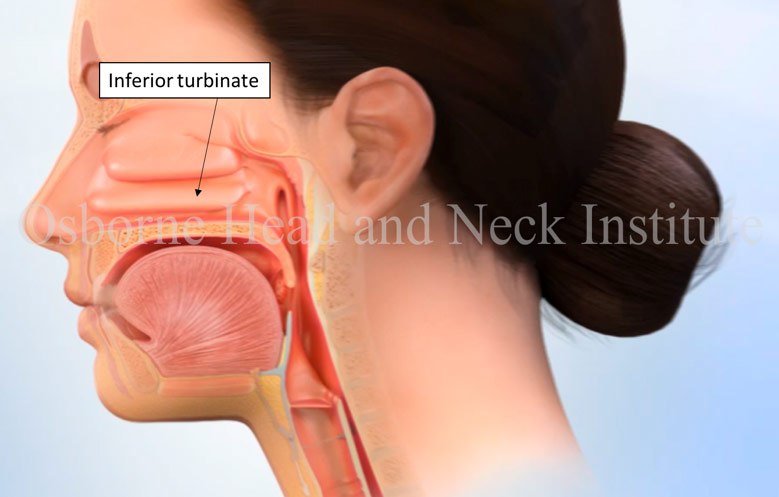- Question: How do the ingredients in e-cigarettes and vaporizers affect respiratory health? - August 16, 2019
- Bad Technique and Vocal Injury - January 9, 2019
- Is Edible Marijuana Dangerous for the Voice? Myths Dispelled - December 18, 2018
- Surprise! You have a hemorrhage - January 31, 2018
- Graves’ Disease: Treatment Overview - September 25, 2017
- Adele and the Stigma of Vocal Injury - July 11, 2017
- Vocal Curbside Consult: How does the thyroid affect the voice? - May 16, 2017
- Vocal Curbside Consult: How do hormones affect the voice? - May 3, 2017
- Vocal Curbside Consult: How do emotion and stress affect the voice? - April 17, 2017
- Vocal Curbside Consult: Vocal Recovery After Illness - April 7, 2017
Most people associate allergies with the classic symptoms seen on commercials: itchy, watery eyes; runny nose; and sneezing. However, far more often, allergies present subtly, and in a way that is quite sinister when it comes to voice: postnasal drip.
What is postnasal drip?
Postnasal drip is the term for mucous that drips down the back of the throat. Mucous forms in glands throughout the respiratory tract, and much of it forms in the nose and sinuses. The body produces a significant amount of mucous – about 1-1.5 liters per day. The vast majority of nasal mucous slides down the back of the nose, into the throat, where it is swallowed.
The symptoms of postnasal drip are noted when nasal mucous changes in quality or quantity. For example, when suffering from a cold, mucous is produced in a greater quantity. It also becomes thicker. When this drips down the back of the throat, it is sensed as postnasal drip.
Do allergies cause postnasal drip?
When an allergic reaction occurs, mucous production increases, and the contents of the mucous are more inflammatory. This is why sufferers will often wake up with a sore throat in the morning. They have been lying down all night, during which the allergic and irritating mucous has dripped into the throat, causing discomfort.
Allergies occur when the body falsely identifies a benign particle, such as dust, as a pathogen (i.e., virus or bacteria). It launches an immunologic response, including nasal inflammation and increased mucous production.
How does this affect my voice?
Allergies and postnasal drip will affect the voice in two ways:
- Laryngitis – Postnasal drip results in irritating mucous contacting the vocal folds, particularly at night. This will result in vocal fold swelling (see video below). Symptoms may be severe (i.e., raspiness, decreased range) or subtle (i.e., delayed onsets, prolonged warm up time). Over time, this increases the risk of injury and may become permanent.
- Decreased nasal resonance – nasal structures, called turbinates, become inflamed with chronic allergies. Turbinate inflammation results in less nasal airflow and less of a resonance chamber for sound. This makes the singer sound congested, and less resonant. Over time, this may become irreversible and require surgery.
What are turbinates?
Turbinates are long, tubular structures that extend from the front of the nose to the back. They are the nasal humidifiers, allowing environmental air to be warmed, moisturized, and filtered before entering the lungs. They are the body’s first line of defense against viruses and allergies, trapping these particles in mucous on the turbinates. Turbinates swell from allergies and cause nasal congestion, increased mucous production and decreased nasal resonance.

Can I just blow my nose to treat symptoms?
Blowing your nose will help with mucous production, but only during the day and for a small amount of mucous. The real solutions for allergic laryngitis include:
- Sinus Rinse – similar to a Netti Pot (which is a good alternative for those who prefer this), this nasal irrigation system is excellent at removing the particles that cause allergy and inflammation.
- Prescription nasal spray – Certain medicated nasal sprays are excellent at reducing allergic inflammation without causing laryngitis, a common side effect of many nasal sprays.
- Allergy management – allergy desensitization is an excellent way to “cure” your allergies, avoiding the need for anything besides a Sinus Rinse.
- Turbinate reduction surgery – If left chronically untreated, turbinates may become so swollen that conservative options do not work. In these patients, turbinate reduction surgery will improve nasal airflow, reduce postnasal drip, and reduce the frequency of infections. Care must be taken to work with a surgeon who is familiar with vocal outcomes of nasal surgery and who is partnered with a laryngologist.



